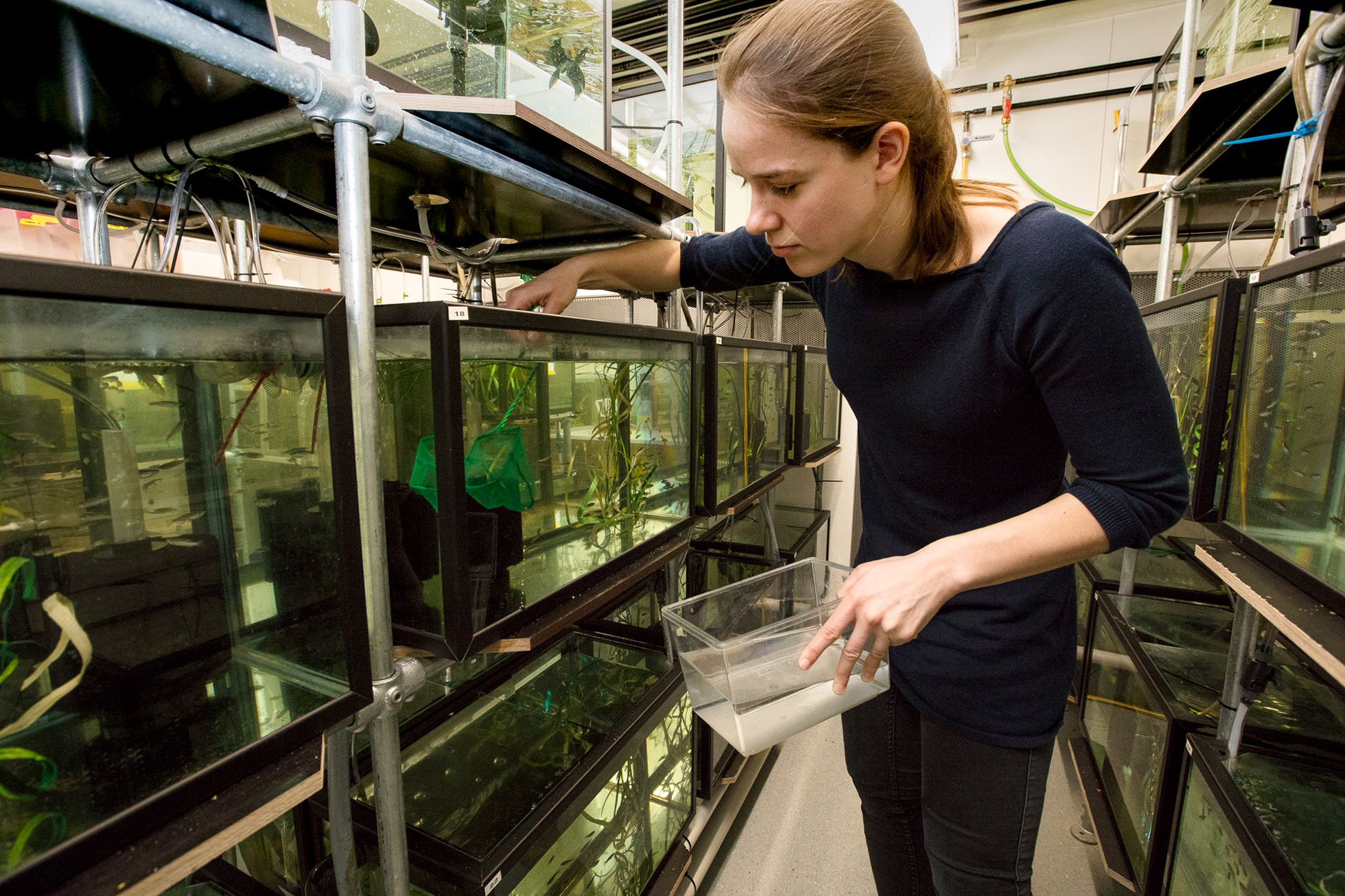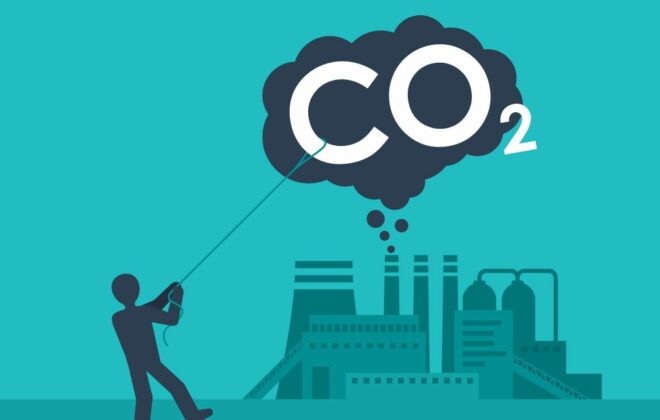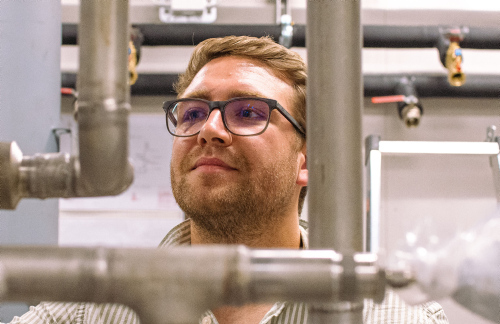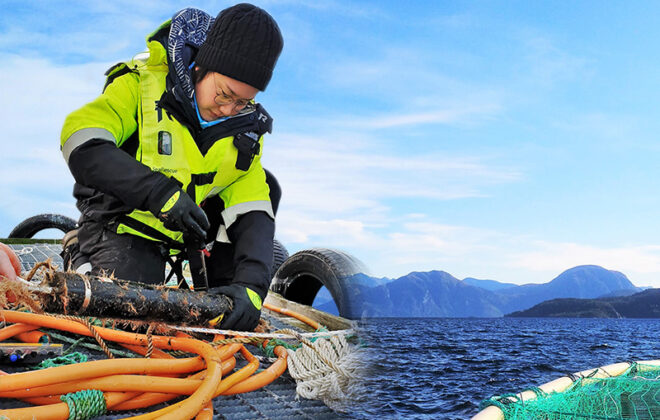Will fish survive rising and more extreme temperatures?

Climate change is increasing average and extreme temperatures globally. In order to predict how fish might be impacted, we first need to understand fundamental aspects of their thermal biology. These include how well an individual can maintain performance as the temperature increases, and how rapidly populations can increase their tolerance to warming through evolution. The latter is likely to be crucial for population survival during increasingly severe heatwaves, yet relatively little is known about the rate of such evolution.
The aquatic lab rat
In my PhD thesis, I aimed to fill these knowledge gaps using zebrafish, the lab rat of the aquatic world. Zebrafish are an ideal candidate species for addressing climate change related questions, but most studies are carried out on populations held for decades in stable laboratory conditions, and very little is known about their natural habitat.
Fieldwork in the natural habitat
Through fieldwork in India, where zebrafish are native, I discovered that zebrafish can be found very close to their upper thermal limit, highlighting the relevance of using them for climate change research. I also show that wild zebrafish are more capable of maintaining performance as temperatures increase than their lab counterparts.

Finally, to investigate whether evolution can increase thermal tolerance, I artificially selected zebrafish for increased and decreased upper thermal tolerance. After seven generations of selection, I found that evolution of thermal tolerance had occurred, however the rate of increase was very slow. Furthermore, exposure to warmer temperatures prior to selection further reduced the rate of evolution.
Adaptable, but with a challenging future
This thesis shows that fish are able to optimise their physiology to match their environment. In the short-term this means fish may be able to survive rising temperatures, yet they will likely struggle to evolve their upper thermal limits rapidly enough to cope with the pace of climate warming.

Rachael Morgan
Rachael Morgan is a PhD candidate at the Department of Biology belonging to the Animal physiology research group working specifically within the Fish ecophysiology lab
Search
Søk
Categories
- Arctic Research
- Arkitektur
- Bærekraft
- Bioingeniørfag
- Biologi
- Biology
- Biomedical Laboratory Science
- Biotechnology
- Bioteknologi
- Chemical Engineering
- Chemistry
- Climate
- Computer Science
- Datateknologi
- Digital
- Elektronikk
- Energi
- Energi
- Energy
- Engineering
- Engineering
- Environment
- Food Science
- Forskning
- Fysikk
- Fysikk
- Havbruk
- Informasjonsteknologi
- Informasjonsteknologi
- Ingeniørvitenskap
- Kjemi
- Kjemisk prosessteknologi
- Kjemisk prosessteknologi
- Kreftbehandling
- Kybernetikk
- Marine Technology
- Materialer
- Materials Science
- Materialteknologi
- Matvitenskap
- Meninger
- Miljø
- Min ph.d.
- My PhD
- My PhD
- My postdoc
- Nanotechnology
- Nanoteknologi
- Ocean
- Oil and gas
- Physics
- Research
- Simulering og visualisering
- Spør en forsker
- Studentliv
- Sustainability
- Ukategorisert
- Universitetsliv
- University Life
Kategorier
- Arctic Research
- Arkitektur
- Bærekraft
- Bioingeniørfag
- Biologi
- Biology
- Biomedical Laboratory Science
- Biotechnology
- Bioteknologi
- Chemical Engineering
- Chemistry
- Climate
- Computer Science
- Datateknologi
- Digital
- Elektronikk
- Energi
- Energi
- Energy
- Engineering
- Engineering
- Environment
- Food Science
- Forskning
- Fysikk
- Fysikk
- Havbruk
- Informasjonsteknologi
- Informasjonsteknologi
- Ingeniørvitenskap
- Kjemi
- Kjemisk prosessteknologi
- Kjemisk prosessteknologi
- Kreftbehandling
- Kybernetikk
- Marine Technology
- Materialer
- Materials Science
- Materialteknologi
- Matvitenskap
- Meninger
- Miljø
- Min ph.d.
- My PhD
- My PhD
- My postdoc
- Nanotechnology
- Nanoteknologi
- Ocean
- Oil and gas
- Physics
- Research
- Simulering og visualisering
- Spør en forsker
- Studentliv
- Sustainability
- Ukategorisert
- Universitetsliv
- University Life



